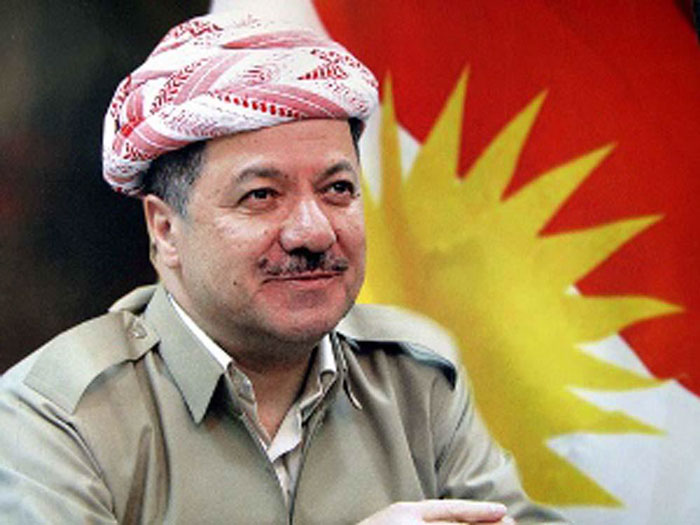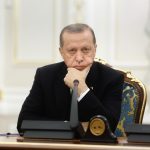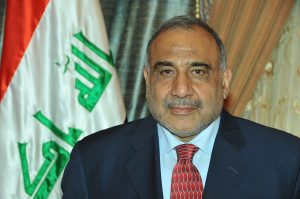by Robert Olson
Turkey does not have one foreign policy toward Iraq but several.
Its primary concern is not toward the Shi’a-dominated government in Baghdad but rather toward the Kurdish Regional Government (KRG) in Irbil, and, in particular, toward the Kurdistan Democratic Party (KDP) led by Massoud Barzani, who is also the KRG’s president. Turkey also strives for decent relations with two other KRG parties, Goran and the Patriotic Union of Kurdistan (PUK). Turkey and the KRG share a 233-mile border that separates Iraqi Kurds from the 8.5 million Kurds who live in southeast Turkey. The PUK and Goran, as well as two smaller Iraqi Kurdish Islamist parties, also enjoy good relations with Iran and are generally not as enthusiastic as the KDP about Turkey’s embrace and ambitions.
After the KRG’s post-Gulf establishment in 1992, Ankara was compelled to initiate a “state-to- region” relationship and, in mid-2003 after the U.S. invasion, a “state-to-government” relationship. The Justice and Development Party (AKP), which came to power in 2002, decided not to participate in the war, compelling Ankara to find other policies to manage the KRG’s post- invasion consolidation and expansion. It settled on a policy of rapidly expanding economic and trade relations in an attempt to bind the new entity ever more closely to Turkey. This policy succeeded beyond all expectations.
A related factor needed to understand relations between Ankara and Irbil is the former’s need for the KRG, especially the KDP, to aid it in managing Kurdish nationalist movements in both Turkey and Syria.
In Turkey, of course, Ankara’s primary concern is the Kurdistan Workers Party (PKK), against which it has been engaged in an on-again, off-again counter-insurgency war for decades. In Syria, Ankara sees the Democratic Union Party (PYD), and its army, the Peoples Protection Units (YPG), the strongest Kurdish nationalist force, as an extension of the PKK. Ankara seeks to compel Irbil to acquiesce in its attempts to destroy the YPG (which Washington views as the most effective fighting forces against the Islamic State (ISIS or IS)). In Ankara’s view, destroying the YPG would facilitate its ongoing campaign to defeat the PKK and its political affiliate, the Kurdistan Communities Union (KCK), within Turkey. Essentially, Ankara wants the KRG, led by Barzani’s KDP, to displace the PYD/YPG as the dominant force in the Kurdish areas of Syria. Since Turkey launched its “Operation Euphrates” in August, it has made notable progress in accomplishing this goal by capturing the 55-mile stretch of the border from IS, thus preventing the YPG from linking the canton of Kobane in the east to the Kurdish canton of Afrin in the west, a key step in the PYD’s bid to create a contiguous Rojava.
Ankara and Irbil have had strong support in this endeavor from the U.S. and Europe, which have opposed autonomy for Syrian Kurds despite their military support for the PYD’s offensive against IS. Their somewhat ambivalent attitude toward that the PYD is reflected in their refusal to accept Ankara’s demands that the group be listed as a terrorist organization, a label they have both long applied to the PKK.
Dealing with Sunni Arabs
Much as it has done with the KRG, Ankara seeks to bolster already established economic ties between Turkey and Sunni Arabs that developed after former Iraqi Prime Minister Nouri al-Maliki came to power in 2006 and, contrary to Washington’s urgings, adopted strongly anti-Sunni policies.
Both Ankara and Irbil calculate that, after Iraqi forces regain control of Mosul from IS, the Sunni Arab leadership will feel compelled to pursue even stronger relations with both capitals. The knitting together of these three mostly Sunni entities—albeit one Arab, one Kurdish, and one Turkish—will likely, in their view, be made necessary by the unwillingness or inability of Baghdad to provide substantial reconstruction aid that will be required in Al-Anbar, Nineveh, and other Sunni-majority provinces. Turkey indeed has large construction companies known for their work internationally, notably the KRG, that could be useful in rebuilding infrastructure in Mosul and other Sunni-governed regions, and there’s no doubt that it wishes to extend its influence there as the ongoing tussle between President Recep Tayyip Erdogan and Prime Minister Haider al-Abadi makes clear.
Another important factor in this calculation is the desperate need in the Sunni-majority regions of water to sustain the all-important agriculture sector there. Turkey’s control of the headwaters of the Tigris and Greater Zab rivers and the KRG’s control of most of the downflow of the Lesser Zab give them enormous leverage. Water is more vital than ever as the ecological damage caused by war, drought, and climate change has drastically reduced its availability.
There are downsides for the Kurds of Turkey, Syria, and Iran, if the above developments are realized, however.
Iraqi Kurds will become ever more dependent on a Turkey that wants above all to weaken Kurdish nationalist movements not only in Turkey and Syria, but also in Iran where key Kurdish leaders maintain close ties with the PKK and PYD. It could also intensify existing tensions within the KRG between Barzani’s KDP and the other two major parties. If, for example, Iraq-based Kurdish nationalist groups increase operations into Iran—something the Kurdistan Democratic Party of Iran (KDPI) appears to be doing in recent months—and Tehran retaliated with cross-border assaults of its own peshmerga forces, already stretched thin in Syria and Iraq could find themselves forced to defend yet another front. Turkey and Iran already have bilateral security agreements and have cooperated militarily in the past against KRG-based Kurdish insurgencies.
But aside from the problems inherent in the KRG’s increased dependence on Turkey, there are other reasons that their calculations regarding the future of the Sunni-majority regions in Iraq may prove mistaken.
Thinking Beyond Mosul
Both Ankara and—even more so—Irbil understand that Tehran is likely to remain the major power in the Shi’a-dominated region in Iraq that runs from the area just north of Baghdad southward to the Gulf for the foreseeable future. The Shia-dominated region, for example, has a total of some 24 million people compared to a mere 11 million who live in the KRG and Sunni regions combined. Moreover, the Shi’a-dominated region currently produces an estimated 140 million barrels of oil a year. By 2018, daily production could rise to as much as four million barrels a day, resulting in a vastly greater income than what the KRG and Sunni regions could produce. The same region also includes Baghdad and Basra, the two major cities in Iraq that will grow in relative importance with the anticipated destruction of much of Mosul, Iraq’s second most populous city, in the wake of the ongoing offensive against IS.
As noted above, the Sunni Arab regions in northern and western Iraq will need considerable assistance in rebuilding Mosul and other towns in areas previously occupied by IS. Baghdad may feel compelled to contribute. But it is certainly less likely to do so if it believes that the Sunni Arabs, or the KRG for that matter, prioritize relations with Ankara.
The KRG is also unlikely to help. Not only is it still burdened with sheltering over a million refugees who are unlikely to immediately return home given the levels of destruction that the final battles against IS are likely to inflict on Mosul and elsewhere. Its high dependence on food imports, a weak industrial base, youth unemployment running up to 50 percent, and a relatively weak industrial and agricultural base add up to serious economic challenges that it has yet to overcome. Moreover, tensions created by the expulsion by peshmerga forces of Sunni Arabs in Kirkuk and elsewhere have no doubt reduced what good will there might have been between the KRG and the Sunni-majority regions. Nor is it likely that the U.S.-led coalition against IS will be willing to invest heavily in the region or that the U.S. itself will contribute much to the rebuilding of Sunni-held regions. Although Ankara would likely encourage a rapprochement between the two groups, such an initiative may be futile given the recent history, particularly if the peshmerga continue to effectively take over areas abandoned by IS during the current campaign.
Nonetheless, for the foreseeable future, Ankara will work with Sunni Arab nationalist leaders, such as Atheel al-Nujaifi, the governor of Nineveh province until June 2014 when IS conquered the city. Significantly, al-Nujaifi’s family served the Ottoman Empire up to the end of World War I and has maintained close ties to Turkey. Al-Nujaifi is the leader of the 4,000-man “Nineveh Guard” militia that was trained in Turkey with CIA backing and is now participating in the battle for Mosul.
Tarik al-Hashimi, a senior Sunni Arab leader who served as Iraq’s vice-president until he was ousted by al-Maliki in December 2011, is also close to Turkey where he has lived since he went into exile in 2012.
Turkey’s policy toward Sunni Arab leadership is based largely on the assumption that there will be little reconciliation between Sunnis and Kurds on the one hand and Baghdad on the other in the short to medium term. That assumption, however, may prove wrong. There may be a sufficient number of Sunni politicians—indeed, there are some already—who seek reconciliation with the Baghdad government to challenge al-Nujaifi and al-Hashemi for the leadership of the Sunni-majority regions. A successful reconciliation would naturally boost Iraqi nationalism, a development that could increase tensions with the Kurds, especially if the KRG and Baghdad governments prove unable to resolve their differences over disputed territories that the peshmerga occupied in the last several years. Indeed, reconciliation between Shi’a and Sunni Arabs, which will no doubt be strongly encouraged by the U.S. and other Western powers, would also challenge the KRG, its relations with Turkey, and the pivotal role that Irbil plays in helping Turkey to manage Kurdish nationalist movements in Turkey.
Like the KRG, Sunni Arabs will have to consider carefully what kind of relations they want with Baghdad and Ankara, especially as Turkey descends more deeply into dictatorship.
Photo: Massoud Barzani






Excellent article. I spent five years in Iraq and was in Kirkuk and Erbil between 2011 and 2012.
Newsflash: Kurds are 85% sunni. PKK, PYD, YPG field communications are 95% in Turkish. Turkey’s concern is unlikely to be “sunni” protectionism. Everything points to attempts at dealing with various apparitions of the terrorist organization, which has a basic Stalinist 1970s maleup under the secular veneer.